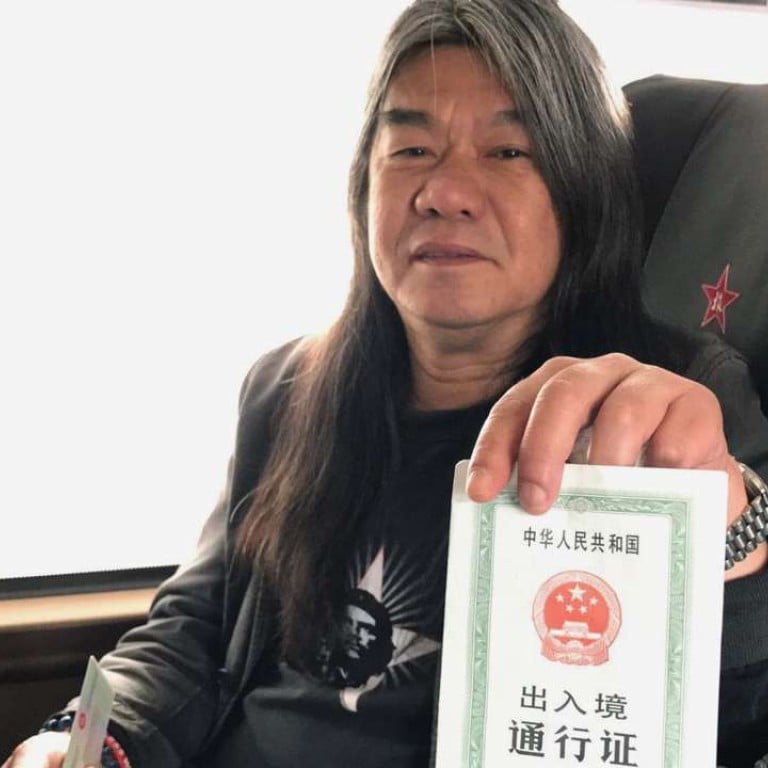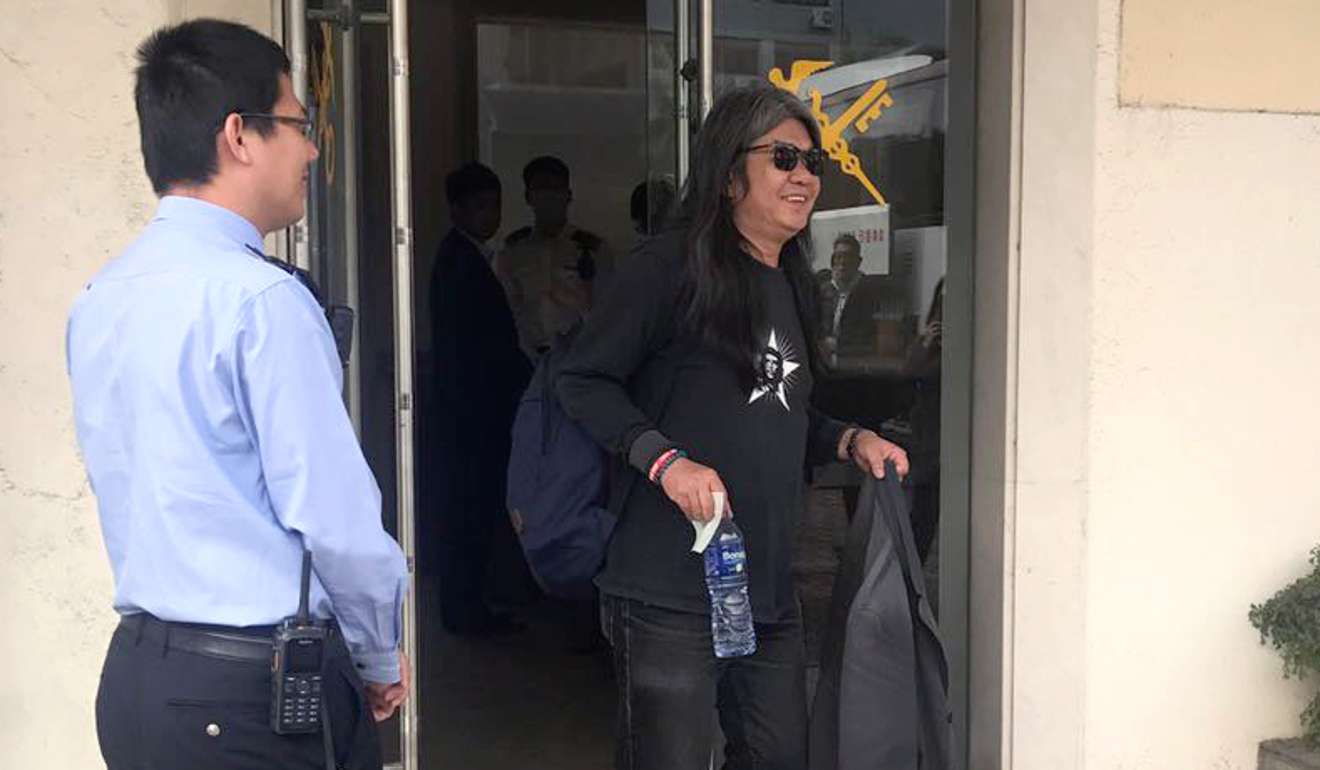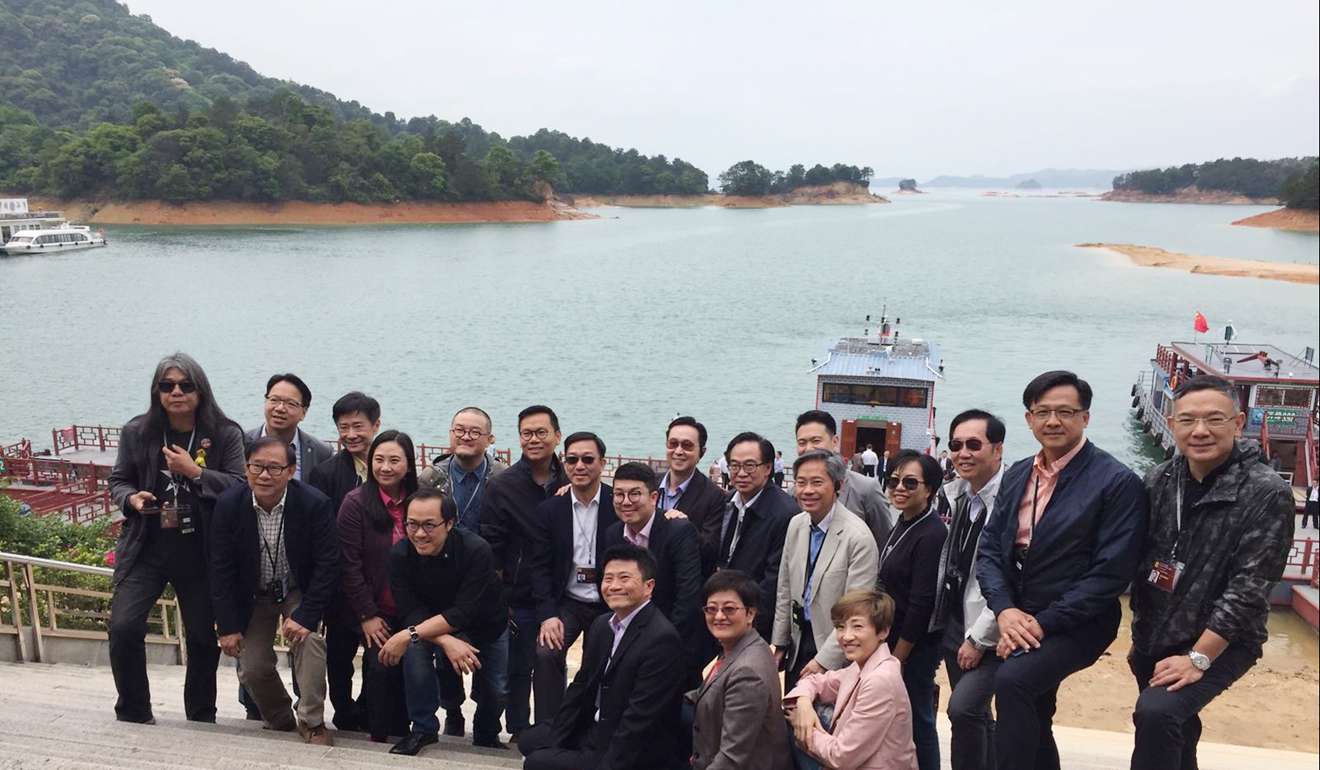
Hong Kong lawmaker ‘Long Hair’ Leung Kwok-hung enters mainland China for first time in 10 years
Pan-democrat given one-off home-return permit to join Legco delegation to Dongjiang River Basin
Radical Hong Kong lawmaker Leung Kwok-hung, one of Beijing’s most vocal critics, has been allowed to enter the mainland for the first time in a decade – even with a yellow ribbon pinned to his jacket as a protest symbol from the Occupy movement.
The opposition politician nicknamed “Long Hair” was questioned but not stopped over the reminder of the 2014 civil disobedience campaign – a taboo topic on the mainland – as he joined an 18-member Legislative Council delegation on a two-day visit to the Dongjiang River Basin in Guangdong province.
Leung, of the League of Social Democrats, was granted a one-off home return permit at Huanggang Port yesterday morning. Allowing him to cross the border into the mainland is seen as an olive branch from the central government to the pan-democrats, many of whom have long been denied the travel documents required to make such a trip.
“I’m happy to be able to visit the mainland, although there is no chance to express my political views,” Leung said.
Apart from Leung, five other pan-democrats joined the Dongjiang tour to inspect the source of Hong Kong’s water supply: Charles Mok, Kenneth Leung, Helena Wong Pik-wan, Shiu Ka-chun and Tanya Chan. Hong Kong development minister Eric Ma Siu-cheung also took part.

As he was crossing the border, an immigration officer asked him to take off the yellow ribbon label pinned to his lapel as a reminder of the 2014 protests, when thousands of pro-democracy activists blocked roads for 79 straight days to oppose Beijing’s restrictive framework for Hong Kong’s political reform.
Leung refused, saying he would not remove it no matter where he went. The officer eventually allowed him through, saying he appeared to be “sincere” about visiting Dongjiang.
The delegation will not meet any key central government officials, as the tour is focused on the issue of water quality with visits to facilities such as treatment plants.
The long-time denial of travel documents for pan-democrats, considered hostile to Beijing, was formally abandoned when No 3 leader Zhang Dejiang visited Hong Kong last year at a time of serious concern about independence advocacy in the city.
Zhang, chairman of the National People’s Congress Standing Committee, met lawmakers including four pan-democrats on that occasion and said the permit issue would be “resolved one day”.

Leung, a staunch opponent of one-party rule in China, had been rejected on earlier attempts to visit the mainland. The most recent one was in 2014, when lawmakers were invited to Shenzhen to discuss political reform with Beijing’s Basic Law Committee chairman, Li Fei.
On that occasion, Leung wore a T-shirt with the words “Occupy Central” and “Lest we forget June 4”, a reference to the military crackdown on the 1989 Tiananmen protests.
The last time Leung visited the mainland was in 2007, when he joined a Legco tour to Shenzhen. He also joined a delegation led by then chief executive Donald Tsang Yam-kuen to Guangzhou in 2005.


